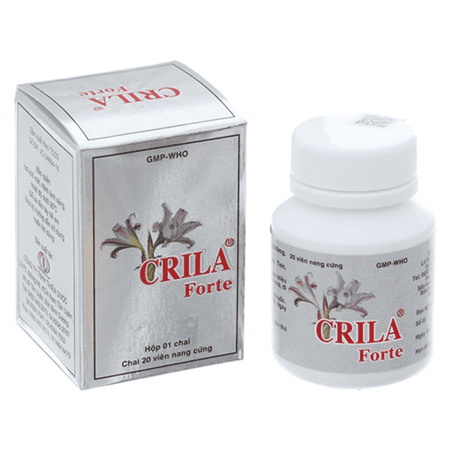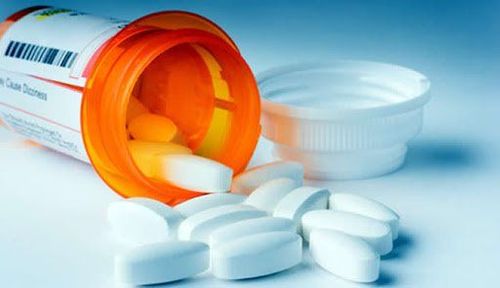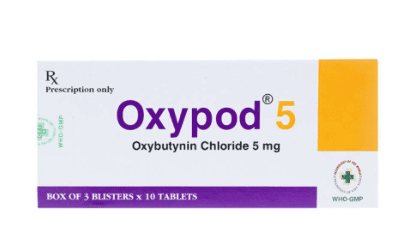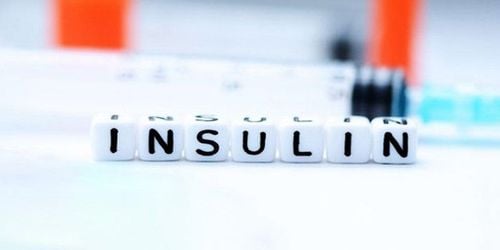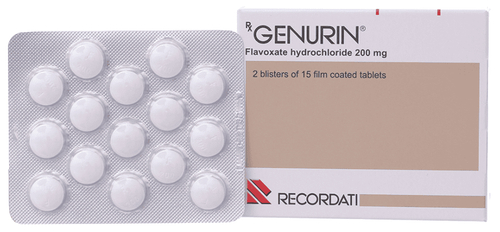This is an automatically translated article.
Article by Pharmacist Quang Anh Nguyet - Faculty of Pharmacy - Faculty of Pharmacy - Vinmec Central Park International General Hospital
With many advantages, Minirin is frequently prescribed for patients with diabetes. However, that does not mean that the patient can use the drug arbitrarily and without instructions.
1. Ingredients, uses and indications of Minirin
Minirin is a prophylactic drug intended to treat symptoms of diabetes mellitus, bedwetting or nocturia. The main ingredient of Minirin is Desmopressin. The drug has two strengths: Minirin 0.1 mg and Minirin 0.2 mg.Minirin, regardless of content, has antidiuretic effect. The following cases will be prescribed by a doctor:
Central diabetes insipidus Primary nocturnal enuresis (from 6 years of age and older). Nocturia in adults
2. Dosage of the drug Minirin
Before prescribing Minirin, the doctor will examine the patient to determine the patient's medical condition. From there, the dose of the drug will be given to each patient. Specifically:
2.1. For central diabetes insipidus, adults and children 6 years of age and older are given an initial dose of 0.1 mg 3 times/day, adjusted according to the patient's response, and maintained at 0.1 mg-0.2 mg. x 3 times/day. Total dose 0.2mg - 1.2mg/day.
Children under 6 years old need to consult a doctor when using Minirin
2.2. For primary nocturnal enuresis: An initial dose of 0.2 mg at bedtime may be increased to 0.4 mg. Children under 6 years old should consult a doctor when using Minirin
2.3. Nocturia: Initial dose is 0.1 mg at bedtime, increase weekly to 0.2 mg and then to 0.4 mg if the previous dose is not effective. Children need to consult a doctor when using Minirin

Người bệnh nên dùng thuốc Minirin theo chỉ định và hướng dẫn của bác sĩ
3. Side effects of the drug Minirin
3.1. In adults: Common: hyponatremia, headache, abdominal pain, nausea, vomiting, dizziness, diarrhea, constipation, hypertension, fatigue, edema, bladder and urethral symptoms. Uncommon: Drowsiness or insomnia, paresthesia, visual impairment, palpitations, dyspnea, orthostatic hypotension, dyspepsia, flatulence, myalgia, muscle spasms, malaise, chest pain, flu-like illness, sweating, pruritus, rash, urticaria, weight gain, elevated liver enzymes, hypokalemia. Rare: Confusion, atopic dermatitis. Frequency not known: Convulsions, asthenia, coma, anaphylactic reactions. In the central indications for diabetes insipidus, dehydration and hypernatremia were noted. 3.2. In children and adolescents Common: Headache. Uncommon: Abdominal pain, nausea, vomiting, diarrhea, fatigue, edema, bladder and urethral symptoms, emotional instability, aggression. Rare: Drowsiness, hypertension, excitability, anxiety, nightmares, mood swings. Frequency not known: Hyponatremia, epistaxis, atopic dermatitis, sweating, urticaria, attention disorders, psychomotor hyperactivity, affective disorder, depression, hallucinations, insomnia, convulsions, anaphylactic reactions.
4. Note when using Minirin 0.1 mg
Minirin 0.1 mg or 0.2 mg all need to follow all the prescriptions for use prescribed by the doctor. By some cases it is not allowed to prescribe this drug.
4.1. Contraindications Patients with hypersensitivity to one or more components of the drug. Excessive thirst (habitual or mental, causing urine production to exceed 40ml/kg/24 hours). Reduced blood sodium. Patients with a history of heart failure and other conditions treated with diuretics. Syndrome of inappropriate antidiuretic hormone secretion (SIADH). 4.2. Caution Those who need to use the drug should consult a doctor after having a need to use the drug.
People over 65 years old. Pregnant women People with galactose intolerance, Lapp lactase deficiency, glucose-galactose malabsorption. People at risk of increased intracranial pressure. People with severe bladder dysfunction. People who are taking drugs that can cause fluid retention, hyponatremia such as non-steroidal anti-inflammatory drugs (NSAIDs) or drugs that can cause syndrome of inappropriate antidiuretic hormone secretion (SIADH) such as antidepressants 3 cyclic, selective serotonin reuptake inhibitors, chlorpromazine, and carbamezepine. 4.3. Overdose treatment As noted, many cases of Minirin overdose lead to prolonged duration of action, increased risk of fluid retention and hyponatremia. When overdose, it is necessary to stop the drug, limit fluid, treat hyponatremia, treat symptomatically if any.
If you notice any unusual health problems, you should visit and consult with a specialist.
Please dial HOTLINE for more information or register for an appointment HERE. Download MyVinmec app to make appointments faster and to manage your bookings easily.
References : Manufacturer's information.



